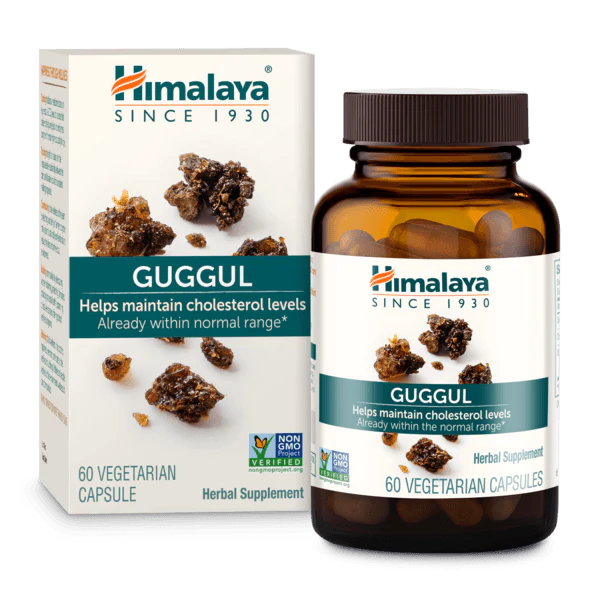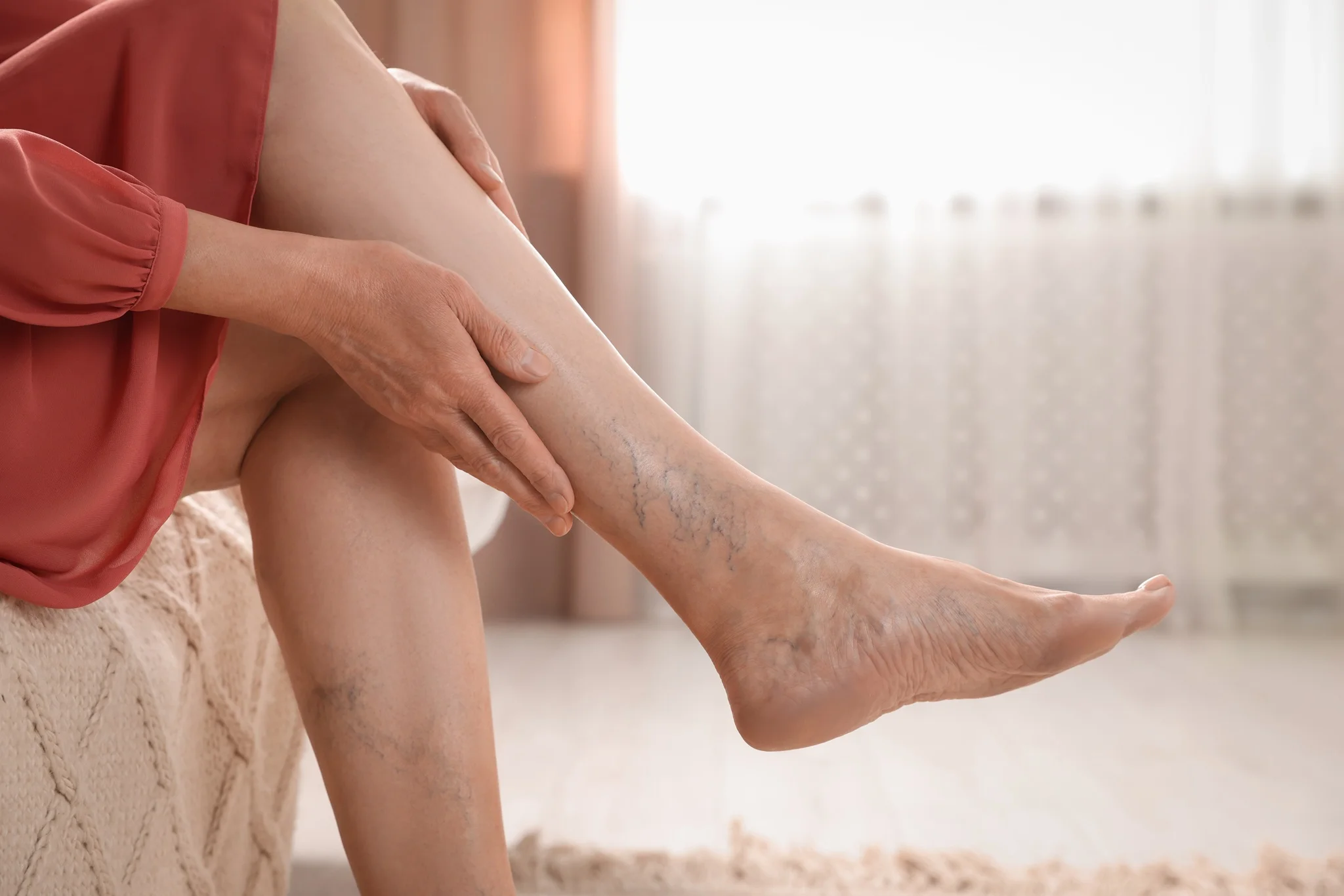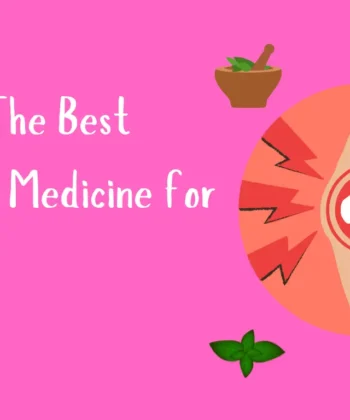
A widespread condition known as varicose veins is characterized by dilated, enlarged veins that often appear in the legs. When the valves that control them become weak or damaged, veins dilate and blood begins to pool. While modern medicine offers treatments such as sclerotherapy, surgery and compression stockings, Ayurveda offers a natural, holistic approach to managing varicose veins through topical applications, diet, lifestyle modifications and Ayurvedic medicines.
This complete guide will cover topical uses, dietary recommendations, lifestyle changes, and Ayurvedic treatment for varicose veins. By learning how Ayurveda views this problem and incorporating these techniques into your daily routine, you can promote vein health and reduce the anxiety that comes with varicose veins.
Understanding Varicose Veins in Ayurveda
Varicose veins in Ayurveda are seen as a condition caused by an imbalance in the Vata dosha, which controls the nervous system, mobility and circulation.Poor vata, which can be caused by poor diet, lack of exercise or excessive physical activity, can result in varicose veins. The results are nerve damage and inadequate blood supply.
According to Ayurveda, maintaining a balance between the doshas of Pitta, Kapha and Vata is essential for general health and well-being. One of the many diseases caused by these energy imbalances is varicose veins. Ayurvedic treatment for varicose veins aims to address both the underlying cause of the disease and its symptoms with a focus on restoring dosha balance.
1. Ayurvedic Remedies for Varicose Veins
There are many herbal remedies available in Ayurvedic treatment for varicose veins, which can improve blood circulation, strengthen the veins and reduce the symptoms of varicose veins. For many years, these natural medicines have been a component of traditional Ayurvedic medicine.
1. Gotu Kola (Centella Asiatica)

In Ayurveda, Gotu Kola is a popular herb for promoting blood circulation and strengthening the nerves. It can reduce the discomfort and swelling of varicose veins due to its anti-inflammatory properties. Gotu kola can be taken as a supplement or applied topically as an ointment or lotion.
2. Guggul (Commiphora Mukul)

Guggulu is a resin with powerful cleansing and anti-inflammatory properties. It effectively reduces the discomfort and swelling of varicose veins while aiding in blood purification. Even though Guggulu is commonly taken in medicine or pill form, it is important to talk to an Ayurvedic expert about the correct dosage.
3. Ashwagandha (Withania Somnifera)

Ashwagandha is an efficient adaptogen that increases circulation and balances Vata dosha. Apart from strengthening the vascular system, it helps individuals with varicose veins. It is well known that using ashwagandha tincture, powder, or pills can help people feel less stressed.
4. Turmeric (Curcuma Longa)

The anti-inflammatory and antioxidant properties of turmeric are well known. It can be used topically or externally to improve blood flow and reduce inflammation.Including turmeric in your diet or using a lotion containing turmeric on the affected area will help reduce the symptoms of varicose veins.
5. Triphala

Triphala is an Ayurvedic blend of Bibhitaki, Haritaki and Amlaki fruits, known for its cleansing and restorative qualities. It helps regulate digestion and circulation and reduces heaviness of legs due to varicose veins. Triphala can be taken as a supplement or as a powder dissolved in warm water.
2. Ayurvedic Diet Adjustments for Varicose Veins
Diet is one of the most important aspects of controlling varicose veins. Ayurvedic remedies for varicose veins suggests making some dietary changes to maintain the health of the nerves and balance the doshas.
1. Increase Fiber Intake
The enlargement of varicose veins is often linked with constipation, which can be avoided with a high-fiber diet. Varicose veins can get inferior due to increased abdominal pressure due to constipation. Include nutritious grains, fruits, vegetables and beans in your daily diet to keep your bowel movements regular and reduce the blood pressure in your veins.
2. Incorporate Anti-Inflammatory Foods
Eating foods rich in antioxidants and anti-inflammatory properties can promote nerve health and reduce inflammation. The superlative choices contain berries, leafy vegetables, nuts, seeds and fatty fish. Additionally, due to their anti-inflammatory properties, herbs and spices such as garlic, ginger and turmeric should be included in your diet.
3. Hydration
It is essential to stay well hydrated to maintain healthy circulation and prevent the blood from thickening, which can aggravate varicose veins. It is recommended to drink eight glasses or more of water daily. Herbal drinks with anti-inflammatory properties, such as dandelion or ginger tea, can also improve blood circulation.
4. Avoid Excess Salt and Processed Foods
Consuming excessive amounts of salt can cause water retention, which increases the swelling caused by varicose veins. Processed foods can aggravate Vata dosha as they are often high in salt and bad fats. Instead of eating highly processed foods, canned goods and salty snacks, choose fresh, whole foods.
5. Healthy Fats
Make sure your diet includes healthy fats like avocado, olive oil and ghee. These fats improve blood circulation and help in tissue lubrication, which are beneficial for varicose vein management.
3. Lifestyle Changes for Varicose Vein Treatment
Ayurvedic remedies for varicose veins includes lifestyle changes in addition to food and herbal medicines, which can have a big impact on managing the condition.
1. Regular Exercise
Yoga, swimming and walking are all light exercises that can help increase circulation and relieve pressure from veins. Yoga Poses including Viparita Karani (feet up), Sarvangasana (shoulder stand), and Pavanamuktasana (wind-relief pose) are highly effective for relieving varicose vein symptoms. Regular physical exercise strengthens the muscles of the legs, which keeps the veins healthy and increases blood flow.
2. Avoid Standing or Sitting for Long Periods
Sitting or standing for long periods of time can increase pressure in the veins and make varicose veins worse. It is important to take regular breaks, stretches and movements to increase circulation.
3. Elevate Your Legs
You can reduce swelling and increase circulation in the legs by elevating your legs above heart level for a few minutes several times a day. By doing this simple practice, the pressure in the veins reduces and blood is able to return back to the heart.
4. Massage Therapy
Light massage using Ayurvedic oils such as Brahmi or sesame oil can reduce the pain of varicose veins and improve blood flow. A relaxing massage using Ayurvedic oils like Brahmi or sesame oil can reduce the pain of varicose veins and improve blood flow. To promote healthy circulation, massage gently and upward toward the heart at all times. Avoid applying deep pressure to the affected areas, as this may make the disease worse.
5. Wear Compression Stockings
Wearing compression stockings is a wise way to treat varicose veins. By increasing blood flow and constricting veins, they reduce pain and swelling. Compression stockings are something that Ayurvedic experts may recommend using in addition to other treatments for best results.
Also Read: 12 Basic Yoga Poses for Beginners
4. Home Remedies and Topical Uses
Varicose veins symptoms may be relieved by using topical treatments. Ayurvedic treatment for varicose veins includes many natural medicines that can be used externally.
1. Ayurvedic Oils
To reduce pain and swelling, the affected area can be rubbed using oils like castor oil and Mahanarayan oil. These oils have properties that help in increasing blood circulation and strengthening the walls of veins. To get best results, warm the oil briefly before using and massage lightly.
2. Aloe Vera and Turmeric Paste
Turmeric reduces inflammation and aloe vera gel has cooling and calming properties. To soothe the skin, reduce inflammation, and encourage vein healing, apply a paste of aloe vera and turmeric to the affected area. After 20 to 30 minutes, leave the paste on the skin and then wash it with lukewarm water.
3. Garlic Oil
Garlic is well recognized for its ability to eliminate toxins and increase blood flow. Garlic oil can be prepared by mixing crushed garlic cloves with olive oil. After using the oil, massage carefully on the skin with affected veins. Garlic oil is an effective remedy for reducing the discomfort and appearance of varicose veins.

Using Ayurvedic remedies for varicose veins, dietary adjustments, lifestyle changes, and detoxification treatments is an all-inclusive approach to controlling varicose veins. Ayurveda offers a harmless and streamlined way to treat the underlying cause of varicose veins and balance the doshas, which helps reduce symptoms and support the health of the veins. To tailor treatments and therapies to your exact needs, you must consult an Ayurveda expert, as you would for any other treatment. You can significantly reduce the discomfort caused by varicose veins and improve your general health with regular practice and dedication to Ayurvedic treatment.




